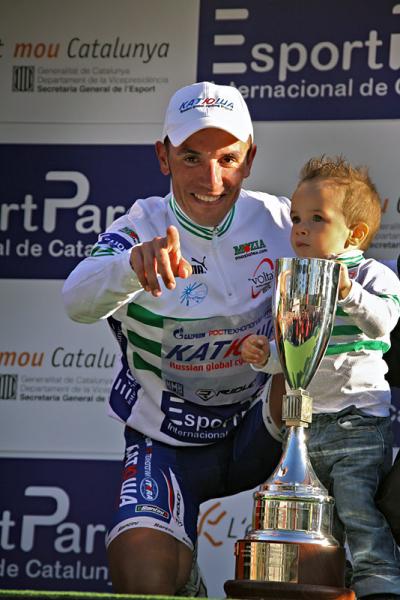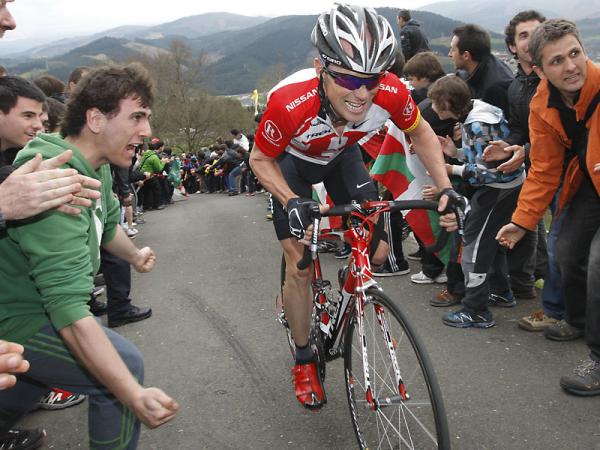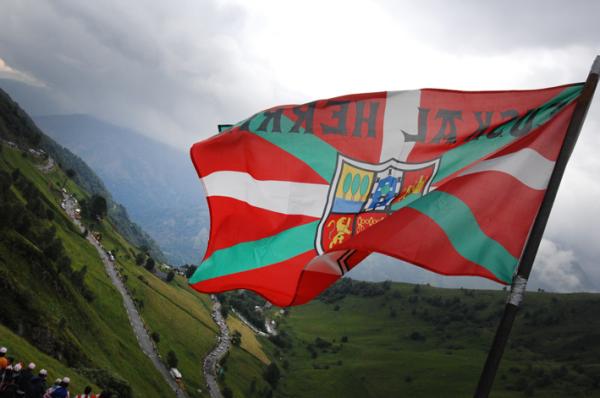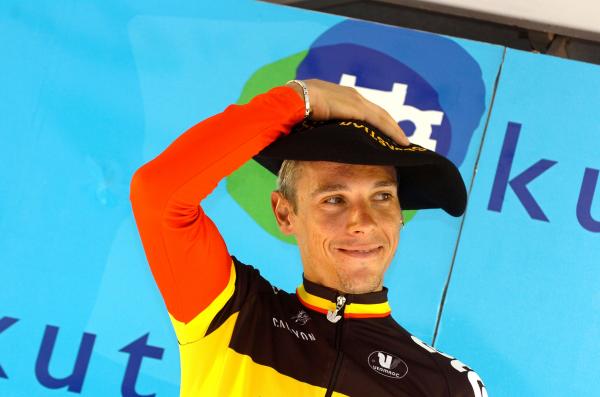UCI considers Basque Country intervention
Plans to save Spain's WorldTour events




With the Tour of Basque Country, Volta a Catalunya and the Clasica San Sebastián all threatened by financial problems, the UCI has stated that it is “closely following” the economic situation of the three Spanish events on the WorldTour calendar.
Last week, Organizaciones Ciclistas Euskadi reported that it €150,000 short of the budget necessary to run the two Basque races at WorldTour level this year following the regional government’s decision to reduce its funding commitment.
In a statement released on Wednesday, the UCI said that it is gathering information “in order to come up with an intervention strategy that can deal with the urgency of the situation” affecting the Tour of the Basque Country and the Clasica San Sebastián.
A possible solution would be the deployment of the UCI WorldTour reserve fund in order to provide financial backing to the races. In 2010, €30,000 was drawn down to ensure the running of the GP Ouest France de Plouay and it is understood that the fund was again deployed in support of the race in 2011.
The UCI is more advanced in its involvement with the Volta a Catalunya, reporting that it is already in discussions concerning the governing body’s “possible participation in a sustainable development plan for this event over the coming years, the terms of which are yet to be defined.”
While the UCI has recently moved to expand the WorldTour by adding another race to the calendar in China at the end of the season, the Tour of Hangzhou, Pat McQuaid insisted that the governing body was not neglecting the sport in its traditional heartlands.
“Although it is true that the globalisation of cycling is our strategic priority the roots and traditions of this fantastic sport are what make it so rich and we must be capable of preserving them,” he said.
Get The Leadout Newsletter
The latest race content, interviews, features, reviews and expert buying guides, direct to your inbox!
“In this very difficult economic context facing the organisers, the cycling world expects the structures put in place by the UCI to be capable of providing a concrete contribution to the movement as a whole. I can guarantee that we are working all-out, and that despite the fact that the resources at our disposal are fairly limited, we will do all we can to offer our support to the organisers.”
War of words in Spain
News of the UCI’s possible intervention to ensure that Spain retains its three races on the WorldTour calendar comes against a backdrop of polemic on the Iberian peninsula following last week’s revelation of the shortfall in Organizaciones Ciclistas Euskadi’s budget.
Jaime Ugarte, president of the Organizaciones Ciclistas Euskadi, said that someone needs to come forward with €150,000 within the next week to ensure that both events take place this year. In a press release, the organization also accused the Basque regional government of reneging on a commitment to finance the two events in 2012 as was agreed under the terms of a contract signed in 2009. That deal committed the Basque government to provide support for the race for three years, with the option of a fourth in 2012. Ugarte had been counting on this option being taken up.
However, the Basque government countered by saying that it does not have the funds available to back the events in the current economic climate. Huge financial cuts are being made in Spain, where 25% of the working population is now unemployed.
The Basque government said that due to this dire economic situation it cannot afford to continue its commitment to the two bike races, and that it would not be right to consider doing so.
The Basque government also hit back at Ugarte and his team, saying that they have turned down the opportunity of working with a new backer. Blanca Urgell, the Basque government’s minister of culture, claimed that “they have rejected a collaboration with a very powerful strategic partner who would have saved the events and guaranteed their economic viability.” That potential partner was reported to be ASO, who already own a majority share in the Vuelta a España and attempted to buy into the Basque Country races back in 2010.
The director of sport in the Basque Country, Patxi Mutiloa, also weighed in against Ugarte and his team, stating: "It is costing us zero euros to bring the Vuelta a España here this year but the Tour of the Basque Country would cost us 200,000. We can’t prop up a private event with 80% public funding. The organizers maintain that they have a great race with high visibility overseas, but that doesn’t seem to be the case given that there is no one who wants to back it.”
The Organizaciones Ciclistas Euskadi hit back once more, putting out a press release in which it, rather oddly, complained that it was tired of this “battle of declarations and press releases”. The statement added: “We will wait until next week to see if any solution can be found. If none is forthcoming, we will call a press conference in which we will announce the disbanding of our organization and the disappearance of the two races, the Tour of the Basque Country and the San Sebastián Classic.”
The announcement of the UCI’s involvement, however tentative, may yet stave off that possibility.
In the meantime, it has been confirmed that this year’s GP Llodio will not take place due to the economic crisis in Spain. However, there is better news for the Vuelta a Ciclista a Castilla y León, which has received the €30,000 it was owed by the government in that region and will now go ahead this year.